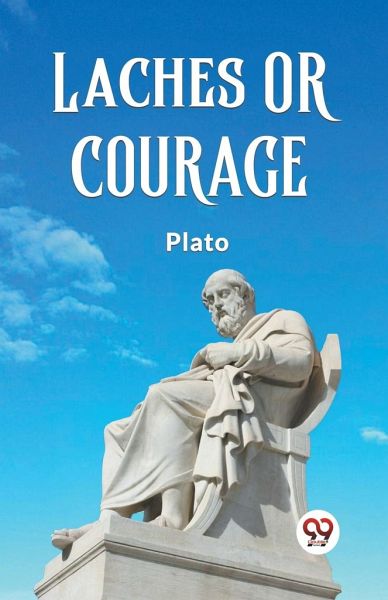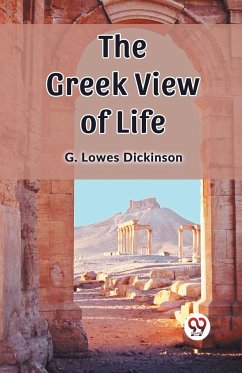
LACHES OR COURAGE
Versandkostenfrei!
Versandfertig in 1-2 Wochen
11,99 €
inkl. MwSt.

PAYBACK Punkte
6 °P sammeln!
"Laches or Courage" by Plato is a philosophical treatise presented as a Socratic dialogue, delving into the complex nature of virtue, particularly courage, within the context of Ancient Greek society. Through intellectual inquiry and rigorous debate, Plato explores the ethical dimensions of courage, seeking to unravel its essence and significance. Set against the backdrop of Athenian society, the dialogue navigates through various perspectives on courage, morality, and education. Socrates, the central figure, engages with interlocutors to dissect their understanding of virtue, drawing upon wis...
"Laches or Courage" by Plato is a philosophical treatise presented as a Socratic dialogue, delving into the complex nature of virtue, particularly courage, within the context of Ancient Greek society. Through intellectual inquiry and rigorous debate, Plato explores the ethical dimensions of courage, seeking to unravel its essence and significance. Set against the backdrop of Athenian society, the dialogue navigates through various perspectives on courage, morality, and education. Socrates, the central figure, engages with interlocutors to dissect their understanding of virtue, drawing upon wisdom and knowledge to illuminate the intricacies of ethical behavior. Plato's dialogues serve as a platform for examining fundamental questions about human conduct and the pursuit of excellence. Through dialectical exchanges, readers are challenged to reconsider their notions of courage and its role in shaping individual character and societal norms. As a cornerstone of classical philosophy, "Laches or Courage" invites readers to embark on a journey of introspection and intellectual discovery. With its timeless insights and enduring relevance, this dialogue continues to inspire critical reflection on the nature of virtue and its place in the pursuit of a flourishing life.














